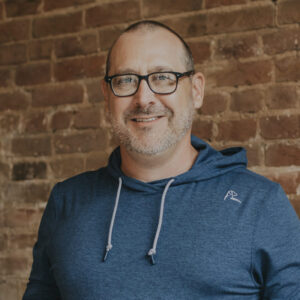July 16, 2025 workforce podcast show notes
Listen Here, or wherever you get your podcasts.
File 30: In today’s file, the team interviews Dr. Debra Clary her pursuit of the power of curiosity. Deb has had a fascinating career path. She’s worked in executive roles at Frito-Lay, Coca-Cola, Papa John’s, Brown-Forman and Humana. Now, she’s helping organizations to better understand how curiosity impacts its performance, all because of an intriguing question.
Meet Deb Clary
Deb was the first person in her family to graduate from college. She completed her bachelor’s degree at Michigan State University and earned her doctorate in leadership and organizational development, from George Washington University.
Her starting role at Frito-Lay was different from what she’d imagined it’d be, but it yielded extremely valuable insights for her career. She spent roughly a decade there, progressing through the ranks. She joined Coca-Cola in various sales, marketing and global roles. Her global client was Papa John’s. They eventually invited her to join their organization, as the VP of Marketing and that brought her to Louisville.
Deb shares she was actually fired from Papa John’s, a year into the role. She admits having come from traditional, corporate environments, the Papa John’s culture was much less-structured and entrepreneurial. Deb assumed a VP of Strategy role in Brown-Forman’s wine division, where she stayed for the next 3 years.
Learning that there are significant differences in culture and how those differences manifest, especially in terms of human behavior, was a key milestone. It provided insights into how organizations could create leaders that could have greater impact and contribution, in a way that was warm and welcoming.
As Deb was completing her dissertation for her doctorate, she encountered someone from Humana. It lead to a role in a leadership institute Humana was developing. She eventually took on the challenge of leading the institute, which cultivated Humana’s top 1,000 leaders. Deb remained with Human for 18 years.
Deb recounts she was sitting next to her CEO, who asked her, “Do you think curiosity can be learned, or is it innate?” It was an intriguing question. After doing a deep dive into the research around that topic, she mentioned to the CEO that curiosity could indeed be learned.
This question ignited a spark in Debra. Surprisingly, there wasn’t a lot of data as it related to the question in a corporate environment. So, she commissioned a team of researchers to do primary research on the topic. The data proved it has immense power to transform. Debra recognized a calling. She subsequently left Humana and is pushing this new revelation out into the world.
A Spark Leads to a Spotlight
A group of accountability partners surprised Deb by arranging an opportunity for all of them to meet in Louisville. It turns out the group had taken a one-woman show concept and actually pitched it to a producer. The producer agreed to take her on, in New York. It was time for Deb to start writing. She had one year to right the play, but absolutely no experience in having done it before.
About six months after the start of her writing, someone connected her with a New York playwright who would be willing to provide feedback. In his words, “This sucks.” Deb had written a keynote, not a play suitable for New York.
With this realization, Deb found someone to adapt it to stage (a phrase she’d never heard before). She, later, found a director, Jessica De La Rosa. She agreed to work on the first act, to see if the two of them could work together. They turned out to be a great match.
Deb’s play is called, “A Curious Woman.” It’s about being a woman in corporate America, during the 80s and 90s. It’s written as a comedy. Interestingly, as a young girl, Deb’s dream was to be a standup comic. She did standup comedy on the weekends, in Detroit, during the Frito-Lay days.
The Curiosity Assessment
This is a tool Deb developed to help companies benefit from the power of curiosity. The research discussed earlier in the conversation highlighted a few important findings:
- Curiosity can be learned.
- Curiosity is contagious.
- Curiosity can be measured
They developed a validated assessment to measure curiosity, which lasts 6-8 minutes. It focuses on four important factors related to one’s curiosity curve, including exploration, openness to new ideas, focused engagement, and inspirational creativity.
The research data indicates that when you have a culture of curiosity, which is most-often driven by the leader, three significant things will occur:
- You drive retention.
- It promotes job satisfaction.
- It fosters engagement.
Deb will assess each member of the organization. It will yield an organizational score for each of the four factors, a total score, a team score, and an individual score. It helps individuals to see how they fit into their team and the organization, at large.
The findings can highlight drivers of friction, especially when a direct report is extremely curious, but is working with a manager or leader who is less so. Luckily, curiosity can be learned and developed. This realization can lead to positive shifts for leaders.
In a recent workshop for the National Presidents Association, a group of women CEOs, the participants took the assessment. Interestingly, the conversation regarding the results focused on their spouses and children. It highlighted areas a friction and why it may be occurring at home. The point is that when you are aware of your curiosity level, real change can happen.
How Does Deb Clary Define Curiosity?
Deb explains that curiosity is being generally interested in others and in other situations. Consider how many questions a child asks on a daily basis. Juxtapose that with the number asked by the typical adult. Over time, we have a tendence to become incurious.
We’ve all heard the saying, “Curiosity killed the cat.” Deb included it her forthcoming book, which should be release this fall. Actually, there’s more to the sentence. The full version is, “Curiosity killed the cat, but satisfaction brought it back.” (William Shakespeare, 1589)
Interested in Contacting Debra Clary to Learn More?
Website: debraclary.com
LinkedIn: linkedin.com/in/drdebraclary
Before We Leave
We wanted to let you know the WTF Podcast is going to have a booth at the upcoming 2025 KYSHRM Conference, August 26-28, at the Central Bank Center in Lexington, KY. Come visit us at Booth 113. Be a guest for one our podcast mini-interviews!
That’s where we’ll leave the conversation for today. Before we close the file, we invite you to reach out to us with questions, suggestions or other comments. We’d love to hear from you.
Did You Enjoy Today’s Conversation?
Visit WorkforceTherapyFiles.com to listen to additional WTF files or to let us know you’d like to be a guest on an upcoming file.
Need Help Supporting Your Company’s Recruiting and Staffing Goals?
We’re here to help. You can contact us via our individual websites, depending on your specific needs or questions:
- Jamie Swaim, SPHR – www.ParcelKnows.com
- Molley Ricketts – www.IncipioWorks.com
- Jason Heflin – www.CrowdSouth.com
We hope you found this file insightful and helpful. Thank you for listening!

By Jason Heflin
Jason Heflin is one of CrowdSouth’s owning Partners and brings years of marketing experience from his past lives as a corporate marketing manager, writer, and freelancer. He also plays the ukulele for fun, which is cool.

